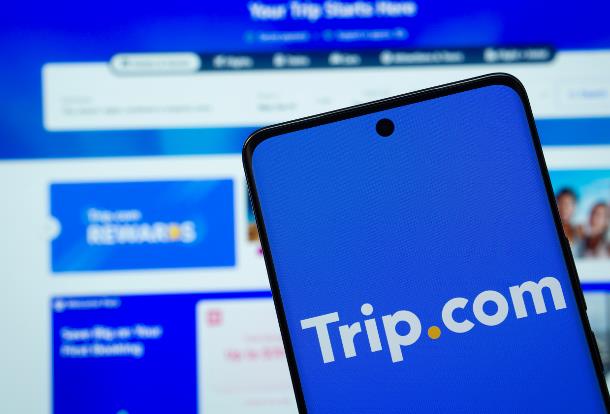ChinaTravelNews, Ritesh Gupta – Business travel in China remains an attractive proposition for the industry, marked by sustained business confidence and opportunities presented by policies such as the Belt and Road initiative. But China still has a fair bit to catch up to refine their overall travel and expense management (T&E) by re-looking at inflexible travel policies and low policy compliance, and complex reimbursement processes.
Multi-national travel management companies have a role to play, and they assert that business travel as a category is moving up despite unique challenges posed by the market.
“Online booking tools (OBTs) and apps are fast becoming the standard of travel management in China,” says Jonathan Kao, Managing Director - Greater China, BCD Travel.
Today travel management specialists such as BCD Travel are developing open ecosystems to digitize T&E management.
The objective is to enable incorporation of relevant offerings for business travellers to streamline and even augment their overall experience. For instance, instantly booking a ticket in case of a flight disruption or being rewarded for playing a part in reduced costs by saving are a couple of examples. A key here is to replicate what business travellers are used to doing in the non-corporate travel environment. “There is a constant comparison between B2B and B2C tools (used for trip planning, the journey etc.). Consumer tools are much more advanced due to their level of usage and investment that has gone in. Demand is high in the B2B space – travellers are keen on using relevant functionalities, superior user interface and efficiency in terms of how many clicks would it take to finish a booking from an app,” mentioned Kao.
Progress
Business travel management is gradually progressing toward the electronic form of approval for expenditure incurred, slowly doing away with manual processes, handling of paper receipts etc.
Also, there is focus on analytics around employees travel expense and evaluating what needs to be done to optimize the same. “Travel management companies have the data and expertise to better forecast and augment their reporting, and can provide companies with actionable insights to control business spending,” said Kao.
According to a recent study by BCD Travel, around 60% of companies surveyed use an OBT and the same proportion have introduced an expense management system. The online adoption figure is lower in China as companies tend to use the traditional method of expense management rather than electronic tools, but this is changing fast. “Greater adoption of OBT and expense management integration is hampered by a lack of knowledge, as many organizations haven’t assigned ownership of the end-to-end process,” Kao said.

Jonathan Kao, Managing Director - Greater China, BCD Travel
BCD Travel recommends integration of travel and expense management systems. Referring to the payment category, merchants outside China are opting for virtual cards, and travel management companies are assisting their usage. “By using a virtual card for paying for travel one doesn’t need to use their own cards and go through a long reimbursement process,” Kao said. He added that the challenge here is the collection of Fapiao, an official invoice issued by the government for goods or services purchased in China, by employees when on business travel. “The Fapiao invoice system is an essential component of China’s tax law, and compliance for businesses,” said Kao, who said that either employees need to ensure they collect their respective Fapiaos or there has to be a provision for e-Fapiao for real-time access to an employee’s receipt, streamlining the travel and expense claims process in order to move with latest developments in this category.
Some of the considerations that organizations in China need to consider:
* How equipped are you to gain an accurate way to track all your spending? Does expense data flow from your travel & expense solution to your accounting solution?
* Can you capture bookings made outside of your booking tool or TMC? - Expenses falling outside the categories booked through the TMC (air, hotel, ground transportation) can account for up to 90% in additional costs. This additional spend can include out of program bookings, meals, taxis, laundry, parking and internal administrative costs associated with payment, accounting and HR.
* How is data being shared with a TMC or multiple TMCs you are associated with?
* How can T&E system improve upon policy compliance?
Suppliers
Other than air ticketing, TMCs are also focusing on expanding into hotel, car rental and insurance. “We work with TravelSky GDS for air tickets as it is the single biggest source of content and very robust. We work with a multi-channel system for hotels - content from our internal contracted sources, foreign GDSs and other suppliers such as eLong, hotel wholesalers etc. Generally, if there is a corporate rate on the GDSs, then it is availed. Some of the hotels aren’t on GDSs, then there could be other booking options, but not in case of airlines,” Kao said. As for emerging platforms such as Fliggy, it provides an option for the small and medium enterprises (SMEs) market to source and buy airline tickets through their app. “We don’t see any impact of Fliggy on the business travel management market yet. Airlines, including both domestic and international carriers, have been opening their respective flagship stores on the Fliggy platform. These could be used for comparison of prices,” said Kao.
Also in case of airlines, since IATA’s new XML standard, New Distribution Capability (NDC) hasn’t picked up in China, Kao pointed out that there is not a lot of development similar to what the likes of Lufthansa have done in markets outside China. For instance, they have introduced surcharges for bookings coming in via non-NDC channel to lower their distribution costs.
Among other developments, the Civil Aviation Administration of China decided to promote the reform of domestic airfares, adding 306 routes to list of 724 previously approved for flexible pricing, a few months ago. Kao said, “These routes carried over 50% of the total domestic passengers in 2017. Even though Chinese carriers are now free to set prices on these routes, the price increase cannot exceed 10% compared to the last season, and the total number of price increase is limited to 15% of the overall “price-unrestricted routes” operated in the last season.” In terms of the impact on corporate travel programmes, Kao said the domestic airfare will become more “open” and subject to demand and supply. He added that advance booking will gain significance as the gap between price ceiling and bottom will widen further going forward. “We recommend 7 – 14 days in advance for domestic air tickets. Also, pricing for popular routes and popular times (e.g. Monday morning / Friday afternoon), will see an increase over and above the average airfare level. Therefore, travel policy may need to be reviewed,” said Kao.




